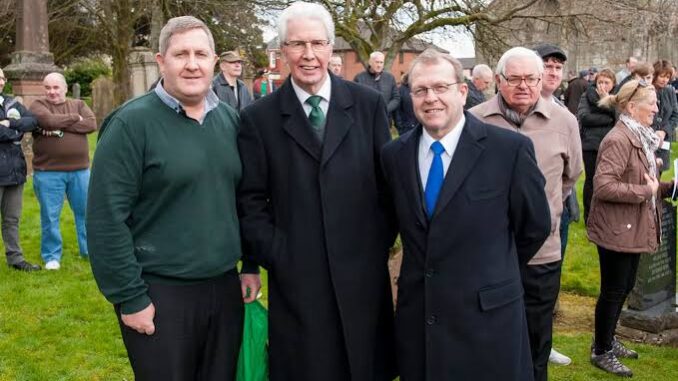
Brady described as ‘a wee barrel of a man’ was one of the best inside forwards in England having made his name with Sunderland, Burnley and Everton was tempted back to his native Glasgow from Merseyside with team mate Dan Doyle after helping secure the Toffees the English league title. Both were instrumental in helping Everton win the league particularly Brady who scored 17 goals in 34 games.
To sign a player of Brady’s stature from the so called bigger league of England where the money on offer was much more tempting was seen as a major coup by Celtic.
Brady despite his reputation had a low goal return in regards to league football during his first season, and as it turned out his only season with the club.
However when it came to the Scottish Cup it was a different story. The Scottish Cup was seen as the most prestigious trophy back then and Brady excelled as he scored twice in three successive rounds which included a brace against Rangers in a 5-3 victory.
Although he didn’t score in the final as Celtic clinched the cup after a 5-1 win over Queen’s Park at the second time of asking due to the first game being declared void, Brady more than played his part in our success. That was the first ever major trophy in the history of Celtic Football Club and Brady deserves great credit for his contribution.
Brady also helped the club win the Glasgow Cup scoring in a 7-1 victory over Clyde, as well as a 2-0 Glasgow charity Cup final win over Rangers.
Alec Brady would depart Celtic after only one season with 10 goals in 24 Scottish league and cup appearances and headed back down to the more financially attractive landscape of English football joining Sheffield Wednesday.
He would spend the next seven years with the Yorkshire club scoring 34 goals in 158 games and helped the club to FA cup glory in 1896, making him one of the first players to win both the Scottish Cup and English FA Cup at a time when both trophies were seen as the pinnacle of football competitions.
Alec would return to Scotland with Clydebank where he would spend two years before finishing his career with local side Renton in 1902. Alec passed away in 1913 at the age of just 43 but would be remembered by all at Celtic Football Club for his brief contribution to the clubs early success.
That success and his overall contribution to football was recognised and honoured in 2016 when his grave in Millburn cemetery was marked by a memorial headstone by the Celtic by the Celtic Graves Society and the Everton Heritage Society.



Be the first to comment